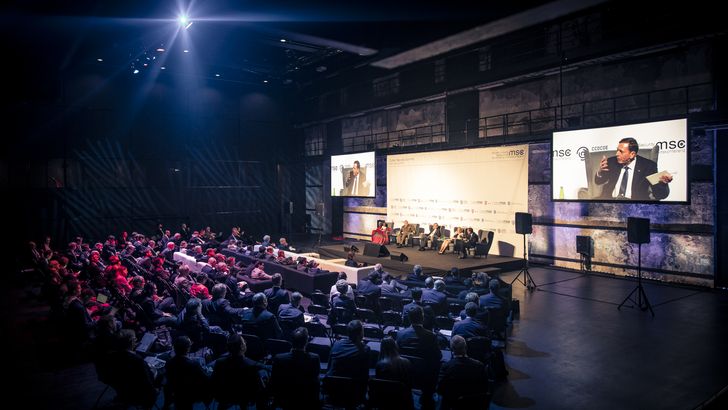

MSC hosting Cyber Security Summit 2019 in Berlin
On November 24 and 25, the Munich Security Conference will convene its Cyber Security Summit 2019 in Berlin. In the run-up to the United Nations' annual Internet Governance Forum, the Summit will gather around 150 high-level decision-makers and expert representatives from the private sector, academia and civil society. Discussions will cover global competition over information technologies, resilience to cyber attacks and disinformation, and geopolitical aspects of internet governance.
Since the early days of the internet, we have seen the discussions around new information technologies and cyberspace turn away from cooperation and common progress towards fierce competition and even conflict. Against this background, promoting trust has never been more important. "Trust is the currency of diplomacy," says Wolfgang Ischinger, Chairman of the Munich Security Conference (MSC). "And trust is also the currency of cyberspace." Without mutual trust between governments, companies and citizens in the security of technologies and of cyberspace, common progress is in jeopardy. And if the fundamental technologies of our digitally interconnected world become segregated along national lines, what does that mean for international stability and security?
After previous editions of the MSC Cyber Security Summit (CSS) in IT innovation hubs like Palo Alto, Tel Aviv and Tallinn, the CSS 2019 will take place on November 24 and 25 immediately prior to the annual Internet Governance Forum (IGF) in Berlin. The CSS 2019 will aim to promote open and frank discussions on tackling the precarious current geopolitical dynamics and on building trust in innovation and cyberspace. Leading up to the IGF in the framework of the United Nations, the CSS 2019 will also focus on the strategic aspects of Internet Governance and the importance of multilateral and multi-stakeholder cooperation. The CSS 2019 will be co-hosted by Deutsche Telekom and in close cooperation with the German Federal Foreign Office and the Federal Ministry for Economic Affairs, which also organizes the IGF in Berlin.
In the spirit of multi-stakeholderism and our Cyber Security Series’ aim of bridging the gap between the spheres of tech practitioners and security policy-making, the CSS 2019 will gather around 150 participants, including high-ranking decision-makers and leading representatives of the tech sector, academia and civil society. Among the political leaders present will be German Minister of Economic Affairs Peter Altmaier, Polish Minister of Digital Affairs Marek Zagórski, Ghanaian Minister of Communication Ursula Owusu-Ekuful, and Bulgarian Minister of IT and Communications Rossen Jeliazkov. Further senior-level participants include Sir Julian King, EU Commissioner for the Security Union, Houlin Zhao, Secretary General of the International Telecommunications Union, and Antonio Missiroli, NATO Assistant Secretary General for Emerging Security Challenges.
Some of the key challenges on the agenda in a series of on-the-record discussion sessions will be: deterring and defending against cyber interference in elections; combating the spread of disinformation and extremism online; maintaining the freedom and openness of the Internet; and the growing geopolitical role of technology companies, including in providing 5G infrastructure.
Over the coming days, the MSC will provide more information about the Cyber Security Summit on Twitter (#MSCcyber), Facebook, Instagram, and on its website.



